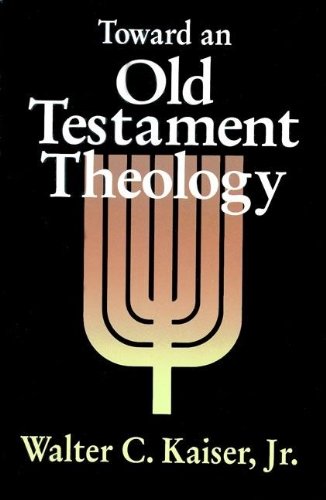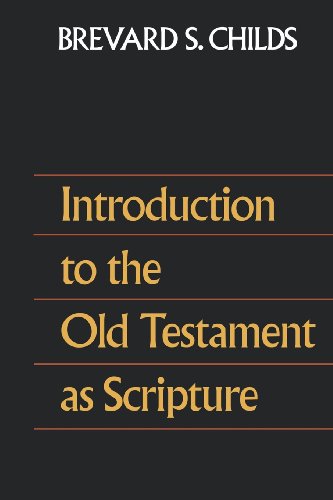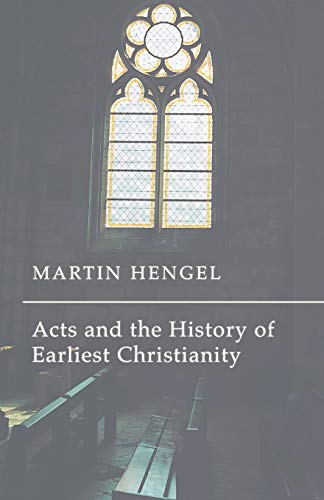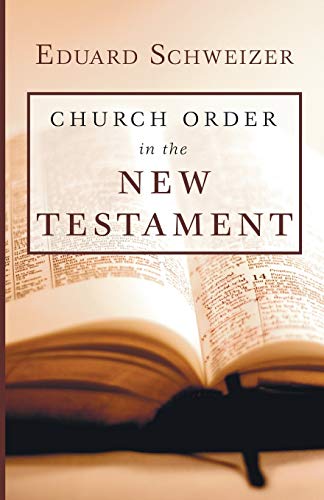Toward an Old Testament Theology
Written by Walter C. Kaiser, Jr Reviewed By Bruce K. WaltkeProfessor Kaiser divides his work into three parts: I. ‘Definition and Method’, II. ‘Materials for an Old testament Theology’, wherein he applies his method defended in Part I, and III. ‘The Connection with the New Testament Theology’, a brief treatise of seven pages.
According to his preface and title I think it fair to say that he is chiefly concerned about the issues raised in Part I, and therefore I will concentrate my review on that section of the book. In fact, however, one of the most valuable sections is his treatment of the prophetic books in Part II.
Before I address myself to Part I, we should note that the book is well-researched and filled with delightful and helpful excursions on various texts and theological issues. It is unfortunate, however, that he opted to use the technical term ‘diachronic’ to describe his method without informing his reader that he has filled it with new meaning.
Regarding the nature of an Old Testament theology Kaisser concludes that it should be a presentation of the theology contained in the Old Testament, a revelation which he finds to be both progressive and unified. To find a method that satisfies this inherent nature he looks for a centre progressively revealed throughout the Old Testament, and proposes to uncover this theme inductively from the text by selecting key passages, terms, etc. in the ‘Jewish’ canon. This centre, to which each writer, he contends, consciously contributed (p. 11), provides the exegete with the antecedent theological context behind the later authors of the Old Testament.
The centre, he argues, is promise, a promise that essentially includes the provisions found in Genesis 12:1–3 and 2 Samuel 7:11–16, but, as he later makes clear, also includes ‘the Mosaic Law’, ‘the fear of the Lord’, etc. Accordingly he develops the materials of the Old Testament chronologically around this theme.
Regarding the nature of Old Testament theology. His handling of the nature of Old Testament theology gives expression to the best features of evangelical scholarship. He rightly disallows separating real event from the biblical witness to the event, the dissection of the text into contradictory theologies, and the imposition of modern categories of thought upon the text. But he does not probe deeply enough into the issue regarding the relationship of biblical introduction to biblical theology. Since the materials of the Old Testament are to be arranged chronologically, the accuracy of this chronology must be demonstrated. It cannot be assumed, for example, that the Pentateuch in its final form is Mosaic.
Regarding the method. While most will applaud his attempt to inductively arrive at a centre from the text, the selection of certain criteria (p. 11) instead of using the whole text leads to some logical fallacies. By selecting certain texts as significant and excluding others as insignificant and then appealing to these texts to prove his thesis, the reasoning becomes circular. Moreover, it is arbitrary and unconvincing to impose comprehensively on the whole Old Testament a theme derived from selected texts. On account of this flaw in method, I doubt that the ‘universal chorus to the contrary’ (p. 69), will now begin to sing the anthem of ‘promise’ in unison.
Regarding the centre. Kaiser supports his case for ‘promise’ so well that no future Old Testament theologies can afford to ignore the importance of this theme. His contribution here is outstanding and will win for his work an abiding significance in this discipline. But I have three main objections to the selection and development of this centre. (1) By including the Mosaic covenant as part of the ‘promise’, Kaiser obscures the essential difference between the covenants based on God’s promise (Noahic, Abrahamic, Davidic, and New) and the Mosaic Covenant based on Israel’s promise. Paul diametrically contrasts the promisory character of the Abrahamic covenant with the Mosaic Law which for a time was added alongside of it (Gal. 3:15–18). Kaiser admits that the conditional character of the Mosaic covenant could qualify Israel’s experience of the promise (p. 111), but by his emphasis on its connection with the Abrahamic covenant he essentially obscures and distorts its true character. Moreover, the writer of Hebrews just as clearly contrasts the old covenant with the new covenant. Kaiser says that the new covenant is simply the old covenant renewed (p. 268), and he finds its inferiority in its ‘deliberately built-in planned obsolescence’. But this is not the contrast the writer of Hebrews has in mind in Hebrews 8:7–12. Hebrews says clearly: ‘God found fault with the people’ (8:8) and then contrasts the provision of the new covenant wherein God promises to put his laws in their minds and write them on their hearts, with the old covenant which lacked this provision.
(2) Even though he stretches the rubric ‘promise’ almost beyond recognition by including the Mosaic covenant as part of it, by making ‘promise’ his organizing principle he also obscures the centrality of Deuteronomy to the Old Testament. He admits that the history of Joshua through Kings ‘was assessed from the viewpoint of the moral standard of Deuteronomy’ and that ‘the structure of this unified history breathed the hopes and threats of Deuteronomy’, but his outline does not even mention the old covenant, which, in fact, is not only central to the prophets but to the Pentateuch as well. It is a striking oddity that the ‘Old Covenant Testament’ does not even appear in the outline, when this is the label the church has found most satisfactory through two thousand years for synthesizing the ‘Jewish’ canon. By using this rubric he also fails to give a balanced treatment of other themes such as fall, judgment, repentance. None of these appear in the outline in spite of their obvious significance in Old Testament theology.
(3) He artificially includes wisdom literature in his theme by appealing to the phrase ‘fear of the Lord’. The intractable fact remains that none of the covenants, so central to his theme, is mentioned in these books.
Regarding the scope. While one appreciates the practical problems of writing a theology that limits its scope to the Old Testament and the exegetical value of employing antecedent scriptures, it is hermeneutically objectionable for a Christian theologian and exegete, who contends for the unity of the Bible, to disallow the use of the New Testament in his interpretation of the Old. Eichrodt was certainly correct when he wrote: ‘The Old Testament can … be grasped in its essential uniqueness only when it is completed in Christ’ (Theology of the Old Testament, 1, 1961, p. 27).
Bruce K. Waltke
Regent College, Vancouver, British Columbia, Canada






